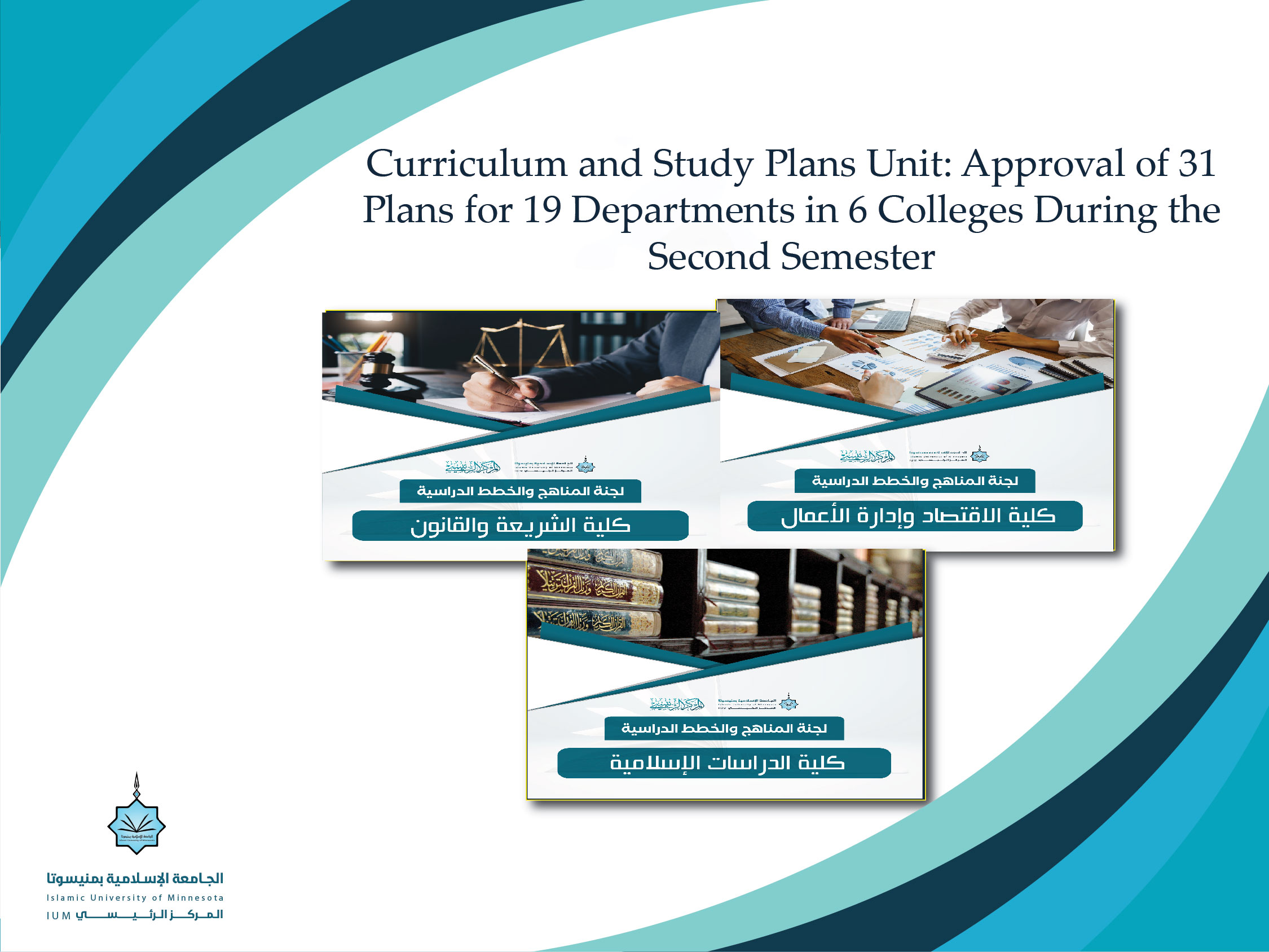Curriculum and Study Plans Unit: Approval of 31 Plans for 19 Departments in 6 Colleges During the Second Semester

Bashair Qasim, the director of the Curriculum and Study Plans Unit, announced that her unit accomplished the approval of 31 plans for 19 departments in 6 colleges at the main center during the second semester. Additionally, the unit completed the review and approval of postgraduate curricula by 95% and undergraduate curricula by 70%. Descriptions were also finalized by 10%.
Qasim emphasized that the unit established curriculum committees in the colleges, developed policies and regulations for the unit and committees, created departments within the unit focusing on quality and continuous assessment, established an Information Technology department, and made some modifications in terms of titles and tasks based on the new vision of the unit system.
Expanding on the unit's responsibilities, Qasim explained that they develop strategic plans for each academic year and semester, create a flexible operational plan that can be adjusted and continuously developed, supervise curriculum committees in colleges, provide necessary resources and material requirements for the committees, evaluate and supervise committee work, and oversee and manage the unit in general.
She further highlighted the importance of the unit's tasks, including providing training requirements, conducting meetings, delivering plans and curricula for all colleges at the main center, and supervising their delivery to relevant entities. The unit continuously monitors educational processes related to curricula and plans through college curriculum committees, engages in continuous development based on necessary circulars and evaluations in the university, and ensures compliance with educational and academic standards for student building, faculty development, and the skills necessary for teaching staff.
Qasim acknowledged some challenges arising from the unit's work plan, describing it as "not compatible with the environment and its nature in general" due to a lack of prior study of the unit's working environment, tasks, and goals. She identified problems such as "inefficiency in operations, waste of time, and effort due to the plan's mismatch with reality, leading to delays in partially planned matters. This is a result of the absence of a well-thought-out integrated plan, although some partial plans are sound. Additionally, there is insufficient overall effectiveness among members."
She concluded by stating that these fundamental problems manifested in various ways, including significant disparities in members' effectiveness, inaccurate results, and the need for constant management follow-ups in trivial matters, even with the presence of committees and members. Due to these challenges, a decision was made to completely revamp the unit.


